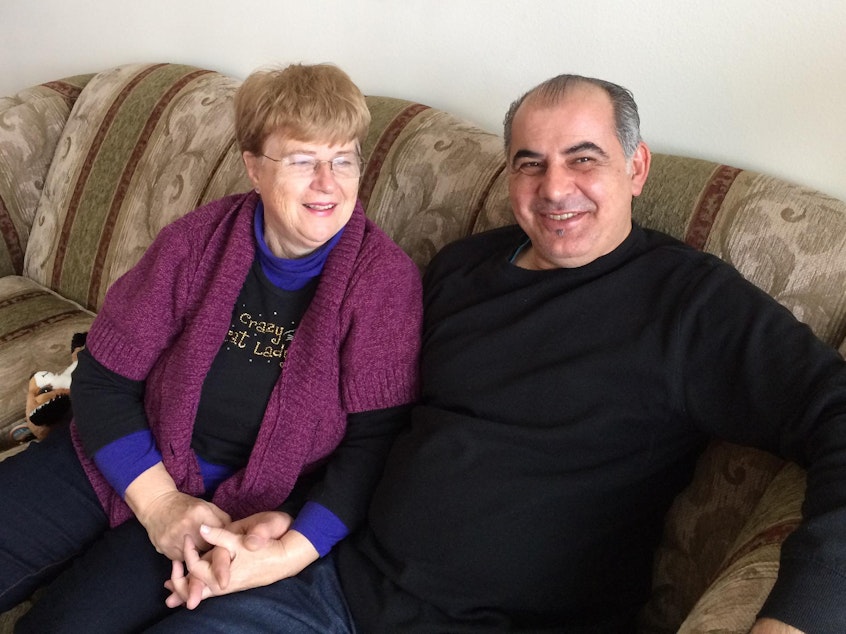Years after the first travel ban, this Seattle woman is still waiting for her husband to return

This week marked the third year since the Trump Administration passed a travel ban that limits visas from seven Muslim-majority countries.
KUOW talked to one Seattle couple in 2018. We checked back in and they're still waiting to be reunited, with no end in sight.
P
amela Raghebi and her husband Afshin talk on Whatsapp almost every day. When it's daytime in Seattle though, it's nightime for Afshin; he's currently stuck in Turkey, 11 hours ahead.
Pamela tries to stay busy; she swims every morning and sings in a choir. But the waiting is painful.
Afshin lived in the U.S. for 20 years without legal documentation. He tried legalizing his immigration status and under the advice of a lawyer, traveled to a consulate in the United Arab Emirates to file the proper documents.
But in 2017, the Trump Administration passed the so-called travel ban, affecting citizens of many Muslim-majority countries, including Afshin's native Iran.
Sponsored
Now he’s stuck in a legal limbo, waiting to get the green light from the U.S. State Department to return home.
In Turkey, he's unable to work, and unsure whether to build a new life or keep the faith that he will one day return to his old one. It's been nearly two years.
His attorney Karol Brown said it's been "heartbreaking" to watch the couple wait.
"I want to be able to tell them they can be together but each time he asks for an update, I have to tell him there’s no news," she said.
In 2018, the U.S. Supreme Court upheld a third iteration of the travel ban.
Sponsored
Pamela admits, "We knew this process had many steps and dared to trust we’d be treated fairly and with respect. [But] when the high court ruled, our hopes were rocked."
The U.S. Department of Homeland Security confirmed Friday that the Trump Administration has expanded the ban to six other countries. The list includes: Kyrgyzstan, Myanmar, Eritrea, Nigeria, Sudan and Tanzania. The order will go into effect on Feb. 22.
Unlike past versions of the travel ban, these new restrictions make it harder for citizens of those countries to obtain certain immigrant visas to come to the United States.
DHS said this is to ensure national security and that the restrictions "do not reflect animus or bias against any particular country, region, ethnicity, race, or religion."
Brown, the couple's attorney, said an expansion of the travel ban is a bad idea.
"It doesn't just affect foreign nationals, it affects their family members many who are legally in the United States. It also impacts student who want to attend American universites, companies like Amazon, Microsoft, Boeing who want to recruit the best and brightest, all over the world. It hurts our economy."
Sponsored
As for Pamela, she said the worst part of the experience is the sense of helplessness she and Ashfin feel.
"There's no one to ask, 'what did we not do?' We were both paying our taxes, working hard, living to build a future. What did we do wrong? There's no answers."
This story was updated to include new information on the travel ban expansion.




